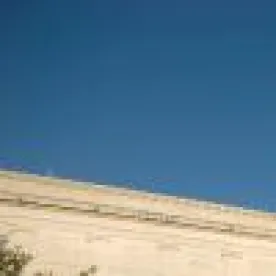Federal Trade Commission (FTC)
FTC approves final order imposing conditions on E. & J. Gallo Winery’s acquisition of assets from Constellation Brands, Inc.
On April 5, 2021, the FTC announced that following the public comment period, it would approve a final order relating to E. & J. Gallo Winery’s transaction with competitor Constellation Brands, Inc. Under the order, Gallo agreed to divest several product lines and exclude several others from its deal with Constellation. As discussed further in our January 2021 newsletter, the FTC alleged that the proposed acquisition would eliminate head-to-head competition and constrain competition in six product markets: entry-level on-premise sparkling wine; low-priced sparkling wine; low-priced brandy; low-priced port; low-priced sherry, and high color concentrates.
Acting FTC Chairwoman Slaughter appoints Marta E. Wosińska as director of Bureau of Economics.
Marta E. Wosińska was appointed director of the FTC’s Bureau of Economics by Acting Chairwoman Rebecca Kelly Slaughter, the FTC announced April 13, 2021. Dr. Wosińska’s expertise is in the prescription drug and health care marketing industries. She joins the FTC from Duke University and previously was Chief Healthcare Economist of the U.S. Department of Health and Human Services Office of Inspector General and Director for Economics Staff in the Food and Drug Administration’s Center for Drug Evaluation and Research.
U.S. Supreme Court limits FTC’s authority to seek monetary relief in deceptive practices enforcement cases.
In AMG Capital Management, LLC v. FTC, the U.S. Supreme Court, in a unanimous decision released on April 22, 2021, overturned years of lower court rulings, finding that Section 13(b) of the FTC Act does not authorize the FTC to seek, or a court to award, equitable monetary relief such as restitution or disgorgement. The Court found that the FTC should primarily use the administrative procedures in section 5 of the FTC Act and the consumer redress available under section 19, to seek consumer redress and restitution in most cases. The decision eliminates the FTC’s ability to obtain asset freezes and receiverships imposed in temporary restraining order and preliminary injunction cases. GT discusses this case in more detail in this client alert.
In a statement issued the same day as the Supreme Court’s ruling, Acting Chairwoman Slaughter said: “In AMG Capital, the Supreme Court ruled in favor of scam artists and dishonest corporations, leaving average Americans to pay for illegal behavior. With this ruling, the Court has deprived the FTC of the strongest tool we had to help consumers when they need it most. We urge Congress to act swiftly to restore and strengthen the powers of the agency so we can make wronged consumers whole.” Separately, there are several legislative proposals pending in congress to amend Section 13(b) in order to give the FTC the right to monetary relief that the Supreme Court concluded in AMG Capital is not available under section 13(b).
Department of Justice (DOJ)
DOJ requires Republic Services to divest assets to proceed with Santek Acquisition.
On March 31, 2021, the DOJ announced that it had filed a complaint and proposed settlement related to Republic Services Inc.’s proposed acquisition of Santek Waste Services LLC. Under the proposed settlement, Republic must divest waste collection and disposal assets in five states in order to consummate the transaction. The DOJ alleged that as originally structured, the acquisition would have harmed competition in small container commercial waste collection and municipal solid waste disposal services in certain local markets. In the local markets at issue, the parties compete heavily with few alternatives. Additionally, in certain areas of Tennessee and Georgia, the transaction raised vertical concerns, with the combined entity being strong in both collection and disposal, with ability to harm competitors by raising the price of a key input (i.e., disposal services).
Bidder pleads guilty to rigging bids at online auctions for surplus government equipment.
The DOJ announced on April 7, 2021, that a Missouri man pled guilty to rigging online bids to the General Services Administration (GSA). The GSA held public auctions for government equipment that was no longer needed, and the defendant allegedly conspired to rig bids with others relating to these auctions from approximately 2012 to 2018. To date, three people have been charged and have pled guilty relating to this conspiracy.
Stone Canyon required to divest US Salt to acquire Morton Salt.
On April 19, 2021, the DOJ announced it had filed a complaint and proposed settlement related to Stone Canyon Industry Holdings LLC’s proposed acquisition of Morton Salt Inc. Stone Canyon owns a portfolio company, SCIH Salt Holdings Inc., and under the proposed settlement, Stone Canyon must divest its evaporated salt business in order to complete the transaction. The DOJ alleged that as originally structured, the acquisition would have harmed competition in evaporated salt—including round-can table salt, pharmaceutical-grade salt, and bulk evaporated salt. In the local markets at issue, the parties compete heavily with few alternatives, and the DOJ alleges that the parties are often either the only parties or two of three parties in the markets.
Second individual charged with fixing wages for health care workers and obstructing an FTC investigation.
The DOJ announced on April 19, 2021, that a federal grand jury issued an indictment charging two Texas men in a conspiracy to fix wages and to obstruct an FTC investigation. The two men (who worked for the same company at the time) allegedly conspired with others to pay lower rates for physical therapy services in 2017, and then the two men also allegedly conspired to obstruct an FTC investigation into their activities by providing false statements, in violation of the Sherman Act.
U.S. Litigation.
U.S. Supreme Court hears argument in National Collegiate Athletic Association v. Shawne Alston, et al., Dkt 20-512.
On April 1, 2021, the U.S. Supreme Court heard oral argument in the above case, involving antitrust challenges to restrictions by the National Collegiate Athletic Association (NCAA) on “education related benefits” that colleges and universities could provide to student athletes. The Supreme Court had granted certiorari on Dec. 16, 2020, to review the Ninth Circuit’s decision (958 F.3d 1239) that the NCAA could limit benefits unrelated to education, but violated the Sherman Act by restricting the value of “education related benefits” provided to student athletes. The Ninth Circuit ordered that the NCAA must allow unlimited education-related benefits (including for tangible items, current and post-eligibility internships, and post-graduate programs or vocational schools); allow cash athletic and academic achievement awards up to a specified cap of $5,980; and that any future NCAA restrictions or definitions of “educated related benefits” would be subject to court approval. The case presents the question of how the rule of reason should be applied to a joint venture (such as the NCAA) that creates a pro-competitive product (consisting of amateur athletics) that could not be created without the joint action of horizontal competitors (the schools and conferences belonging to the NCAA). The Supreme Court’s decision is expected by June 2021.
In re JUUL Labs, Inc. Antitrust Lit., Case No, 3:20-cv-02345, (N.D. Cal. Apr. 21, 2021).
Altria Group Inc. and Juul Labs Inc. may face a proposed antitrust class action seeking to unwind a $12.8 billion deal that gave Altria, the legacy tobacco company, a 35% stake in vaping giant Juul, a federal judge in San Francisco said in an April 21, 2021, “tentative” ruling. The e-cigarette antitrust claims stem from an allegedly anticompetitive agreement between Altria and Juul, whereby Altria agreed to acquire an ownership interest in Juul in exchange for over $12 billion in cash. Altria also allegedly agreed not to compete with Juul and to provide Juul valuable retail shelf space in the e-cigarette market. Through this agreement, Juul allegedly was able to maintain its dominance in the e-cigarette market and earn monopoly profits. Altria then allegedly shared these profits through its ownership stake in Juul. Judge William H. Orrick indicated his inclination to let most of the lawsuit move forward, writing that “[p]laintiffs plausibly allege facts in support of an illegal agreement to restrain trade and conspiracy to do the same.” He also signaled he would give a green light to the part of the case seeking to roll back the transaction under Section 7 of the Clayton Act.
Olean Wholesale Grocery Co-op, Inc. v. Bumble Bee Foods LLC, 993 F.3d 774 (9th Cir. 2021).
StarKist Co. won its bid to overturn a ruling certifying three purchaser classes in multi-district antitrust litigation over an alleged pricing fixing scheme, after the U.S. Court of Appeals for the Ninth Circuit decided April 6 that the lower court failed to resolve a key factual question. The Ninth Circuit held that the lower court abused its discretion in failing to resolve competing expert claims on the reliability of the plaintiffs’ statistical models, which was necessary to decide whether common questions of fact predominated over questions affecting individual class members.
The two models offered highly different hypotheses on the percentage of class members who were affected by the alleged price fixing: Plaintiffs contended that nearly 95% of tuna purchasers had suffered an antitrust injury, but defendants said nearly 30% were uninjured. The Ninth Circuit held that the trial court should not have certified the class without resolving that discrepancy. In addition, the 9th Circuit staked out a clear position on the issue of class certification and uninjured class members. The appeals court explicitly held that trial judges may not certify classes that contain more than a minimal number of uninjured class members, but did not set a bright-line standard for an acceptable percentage of uninjured class members, however.







 />i
/>i

